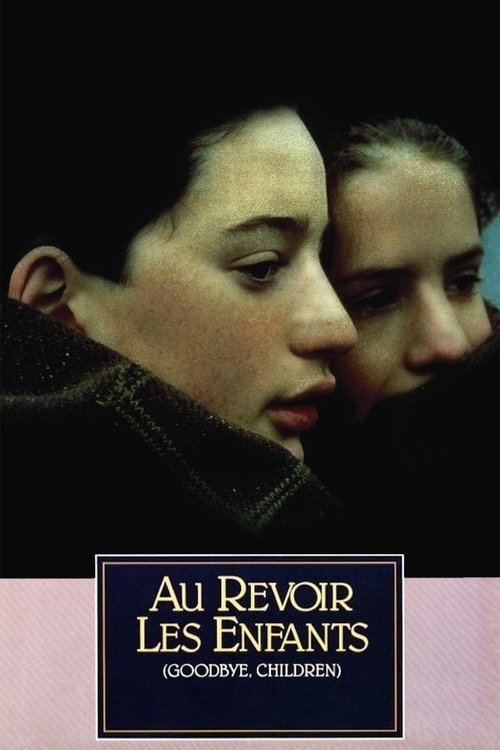
Title: Au Revoir les Enfants
Year: 1987
Director: Louis Malle
Writer: Louis Malle
Cast: Gaspard Manesse (Julien Quentin),
Raphael Fejtö (Jean Bonnet),
Francine Racette (Mrs. Quentin),
Stanislas Carré de Malberg (François Quentin),
Philippe Morier-Genoud (Father Jean),
Runtime: 105 min.
Synopsis: Au revoir les enfants tells a heartbreaking story of friendship and devastating loss concerning two boys living in Nazi-occupied France. At a provincial Catholic boarding school, the precocious youths enjoy true camaraderie—until a secret is revealed. Based on events from writer-director Malle’s own childhood, the film is a subtle, precisely observed tale of courage, cowardice, and tragic awakening.
Rating: 7.505/10
Whispers of Innocence in a World at War
/10
Posted on July 20, 2025
Louis Malle’s Au Revoir les Enfants (1987) is a piercing elegy to childhood, memory, and the fragility of human bonds, set against the somber backdrop of Nazi-occupied France. Malle, directing with a deft hand, crafts a film that is both intimately personal and universally resonant, drawing from his own wartime experiences. The screenplay, lean yet layered, unfolds with the quiet intensity of a memoir, focusing on the friendship between Julien, a privileged French boy, and Jean, a Jewish classmate hiding in plain sight at a Catholic boarding school. What sets the film apart is its refusal to sensationalize; Malle trusts the story’s inherent weight, allowing understated moments to carry profound emotional truths.
The acting, particularly from the young leads, Gaspard Manesse (Julien) and Raphaël Fejtö (Jean), is remarkable for its naturalism. Manesse captures Julien’s blend of adolescent bravado and dawning moral awareness, while Fejtö’s reserved yet soulful performance conveys Jean’s unspoken burden. Their chemistry, built on small glances and hesitant gestures, anchors the film’s emotional core, making their inevitable parting all the more devastating. Malle’s direction ensures these performances never feel coached; the boys’ interactions pulse with the authenticity of youth, unmarred by melodrama.
Cinematographer Renato Berta’s work is equally compelling, using muted, wintry palettes to mirror the moral chill of the era. The camera lingers on the stark beauty of the French countryside and the school’s austere interiors, creating a sense of confinement that subtly parallels the encroaching threat of the Gestapo. Yet, the film’s visual restraint avoids heavy-handed symbolism, allowing the story’s human elements to take precedence. The score, sparse and unobtrusive, amplifies the silence of unspoken fears, with faint piano notes underscoring moments of vulnerability.
If the film falters, it’s in its occasional narrative ellipsis some secondary characters, like the school’s staff, feel underexplored, leaving their motivations opaque. This minor flaw, however, does little to diminish the film’s impact. Malle’s refusal to offer easy resolutions or moral platitudes elevates Au Revoir les Enfants into a meditation on guilt, complicity, and the fleeting purity of childhood. The final scene, with Julien’s voiceover reflecting on memory’s weight, lingers like a wound that never fully heals, a testament to Malle’s ability to transform personal recollection into universal art.
0
0
